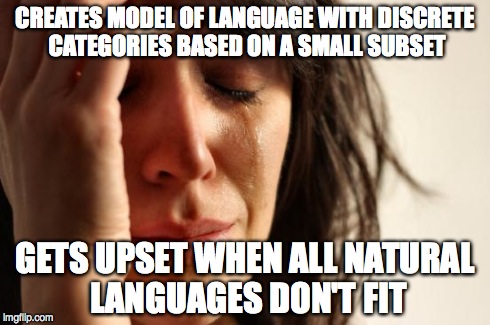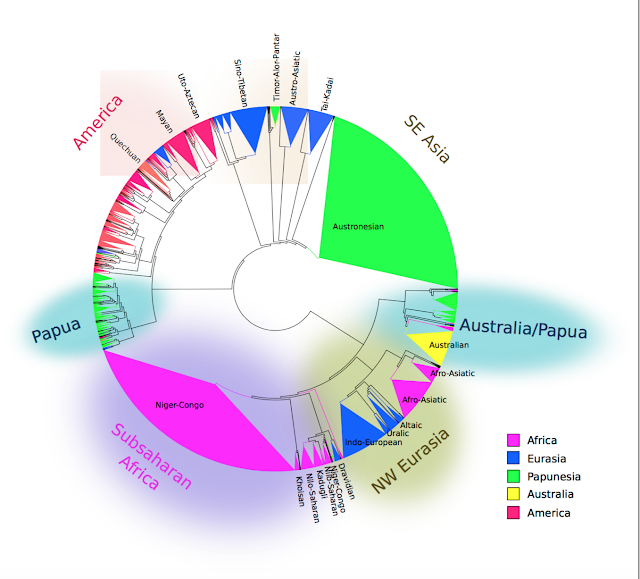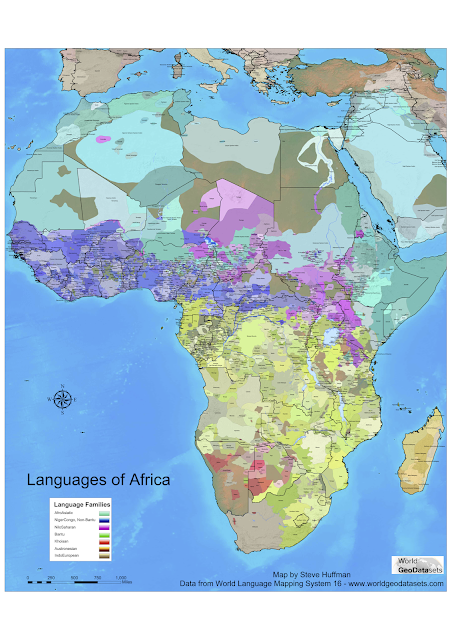When I have to deal with irrealis
Irrealis is a grammatical term that covers a range of functions that are in the non-realised, imagined sphere of events, states and actions, such as future, negation, subjunctive, optative etc. It's most often described as a mood or modality, but not always. (This is related to whether future is a tense or a mood.) Typically, if the marker in question only marks future it is not called "irrealis" but "future" or "non-past" if applicable, but it might be called "irrealis" because neighbouring languages use a cognate to encode other irrealisy functions and such is the convention in that descriptive tradition (which does make sense). And of course, irrealis, future and related functions tend to grammaticalise into each other over time, and create nice fuzzy stages that we linguists can tear our hair out over (finally admitting to ourselves that while we love natural languages, they also drive us crazy).
Basically, there is a lot of different apples that go into this basket and it is often hard when you're reading a description or part of it to know exactly what the author(s) intend with the term. I've put two articles below that I HIGHLY recommend reading if you ever want to work with the term "irrealis".
It's not a totally useless term, there is something funky and interesting going on in the imagined, not realised sphere, as de Haan (2012) also argues. However, under-defined terms are not contributing to our understanding of this, especially when they're applied cross-linguistically without care. Conflicting and confusing terms are actually preferable to under-defined terms. I prefer a diversity of lots of contradicting terms any day over not knowing what the authors meant, obviously.
We need to recognise the diversity that also exists in linguistic descriptive traditions and conventions - understand, accept and make it explicit. More bottom-up descriptions and more explicit definitions. Cross-linguistic standardisation of terms used directly on specific languages without thoroughly critique and investigation is not the answer - it will only make matters worse.
The issue is not with languages themselves, they're perfectly natural and awesome as they are (per definition), the issue is with our frames of understanding and categories - and when they're rigid and/or under-defined. We don't need a standardised set of terms in order to do description and comparison - we need explicitly motivated and argued points with enough supporting evidence.
Sorry for being ranty, I hope you can sympathise or have patience.
I think it's time to update this old meme, here's a new improved version:
- Exter, Mats (2012) ‘Realis’ and ‘irrealis’ in Wogeo: A valid category? in Nicholas Evans and Marian Klamer (eds) Melanesian Languages on the Edge of Asia: Challenges for the 21st Century. Language Documentation & Conservation Special Publication No. 5, pp. 174–190 (free PDF here)
- Haan, Ferdinand de. 2012. Irrealis: Fact or fiction? Language Sciences 34. 107–130. (free PDF here)
Over and out, for realz.





Comments
Post a Comment